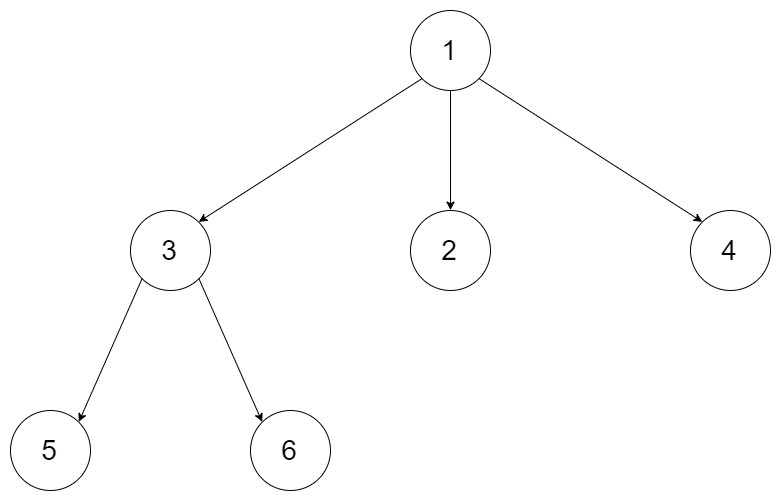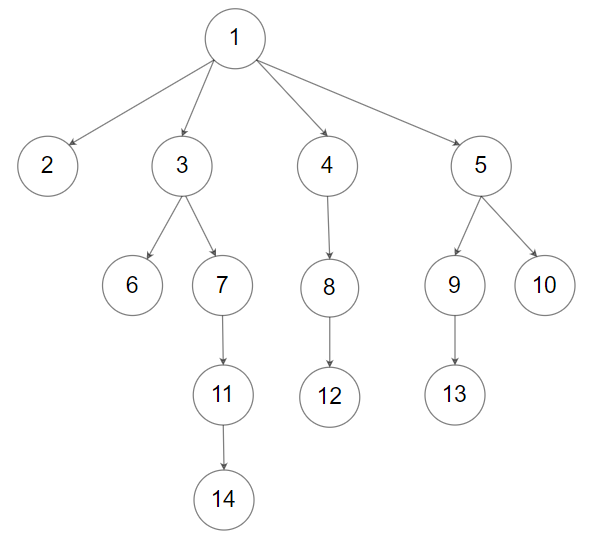Given the root of an n-ary tree, return the postorder traversal of its nodes' values.
Nary-Tree input serialization is represented in their level order traversal. Each group of children is separated by the null value (See examples)
Example 1:
Input: root = [1,null,3,2,4,null,5,6] Output: [5,6,3,2,4,1]
Example 2:
Input: root = [1,null,2,3,4,5,null,null,6,7,null,8,null,9,10,null,null,11,null,12,null,13,null,null,14] Output: [2,6,14,11,7,3,12,8,4,13,9,10,5,1]
Constraints:
- The number of nodes in the tree is in the range
[0, 104]. 0 <= Node.val <= 104- The height of the n-ary tree is less than or equal to
1000.
Follow up: Recursive solution is trivial, could you do it iteratively?
Related Topics:
Stack, Tree, Depth-First Search
Similar Questions:
- Binary Tree Postorder Traversal (Easy)
- N-ary Tree Level Order Traversal (Medium)
- N-ary Tree Preorder Traversal (Easy)
// OJ: https://leetcode.com/problems/n-ary-tree-postorder-traversal/
// Author: github.com/lzl124631x
// Time: O(N)
// Space: O(logN)
class Solution {
public:
vector<int> postorder(Node* root) {
vector<int> ans;
function<void(Node*)> dfs = [&](Node *root) {
if (!root) return;
for (auto n : root->children) dfs(n);
ans.push_back(root->val);
};
dfs(root);
return ans;
}
};Preorder traverse the mirrored tree and reverse the result!
// OJ: https://leetcode.com/problems/n-ary-tree-postorder-traversal/
// Author: github.com/lzl124631x
// Time: O(N)
// Space: O(logN)
class Solution {
public:
vector<int> postorder(Node* root) {
if (!root) return {};
vector<int> ans;
stack<Node*> s{{root}};
while (s.size()) {
root = s.top();
s.pop();
ans.push_back(root->val);
for (auto n : root->children) s.push(n);
}
reverse(begin(ans), end(ans));
return ans;
}
};// OJ: https://leetcode.com/problems/n-ary-tree-postorder-traversal
// Author: github.com/lzl124631x
// Time: O(N)
// Space: O(N)
class Solution {
public:
vector<int> postorder(Node* root) {
if (!root) return {};
vector<int> ans;
stack<pair<Node*, int>> s{{{root, 0}}};
while (s.size()) {
auto [n, i] = s.top();
s.pop();
if (i == n->children.size()) ans.push_back(n->val);
else {
s.emplace(n, i + 1);
s.emplace(n->children[i], 0);
}
}
return ans;
}
};
